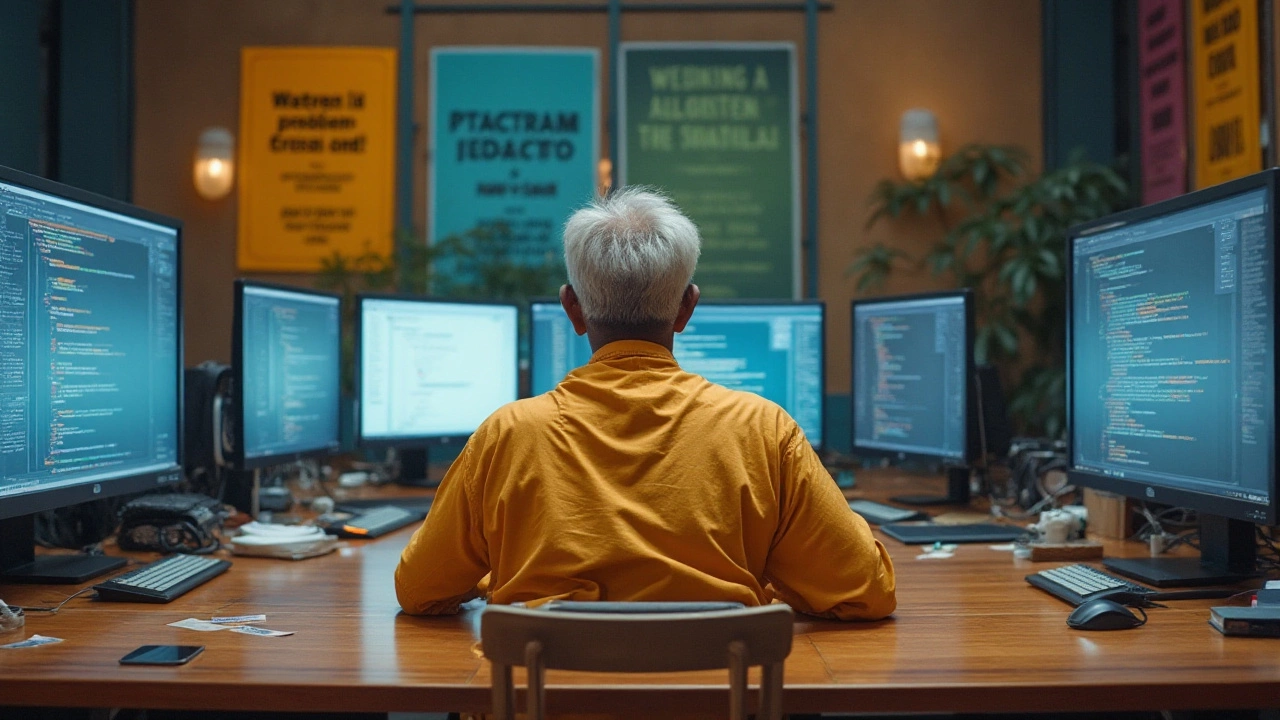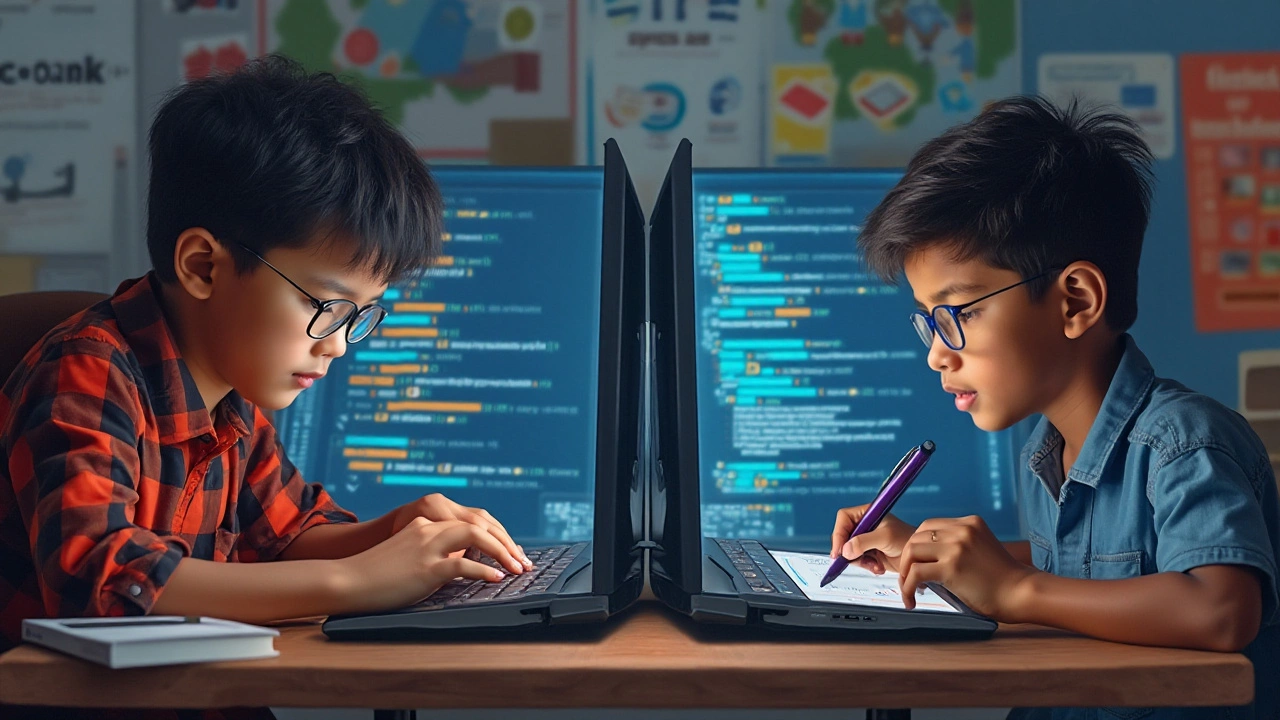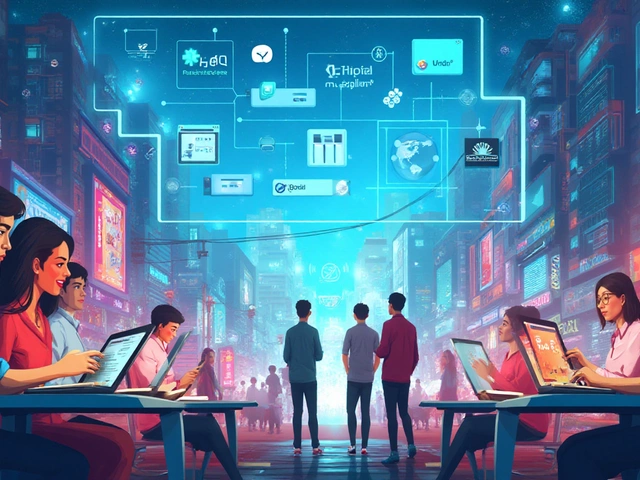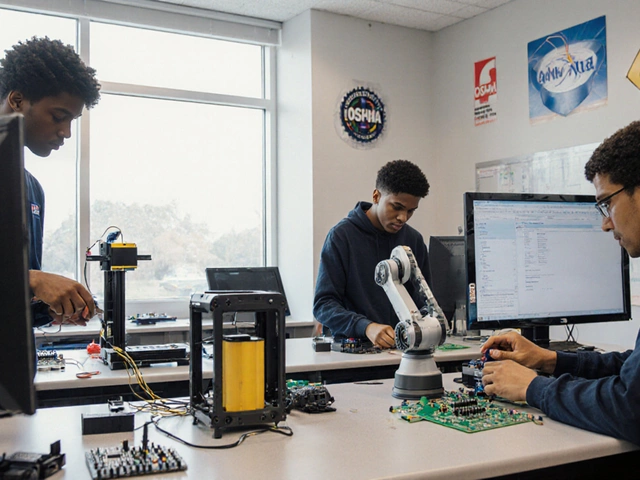In the fast-paced world of technology, two terms frequently surface: coding and programming. While they may seem synonymous to the casual observer, they hold distinct places in the realm of software development. It’s much like comparing bricks to a complete house; both are essential, yet one encapsulates much more complexity and design.
Cracking the code on these differences can be enlightening, whether you are a budding tech enthusiast or someone simply curious about how these digital marvels come to be. Both coding and programming serve as foundations upon which the vast world of apps, websites, and digital solutions are built. But what true differences lie between these closely related concepts? Let's delve into the details.
- Defining Coding and Programming
- The Skills Required for Each
- Practical Applications in the Real World
- Learning Resources for Beginners
Defining Coding and Programming
Imagine walking into a bustling kitchen, where the chef is meticulously preparing a mouthwatering dish. Coding is akin to writing the recipe, precise and clear, detailing each step for a concoction to come to life. It involves using computer languages or scripts to create instructions that a machine can follow. "Coding," as many might know, means translating human intentions into binary language that computers comprehend. Whether it's Python, Java, or C++, each language has its own syntax and rules, forming the linguistic framework through which software development communication happens.
Programming, on the other hand, is like being the chef who orchestrates the entire meal, encompassing the logic, design, and the art of the dish. In the realm of technology, programming doesn't stop at writing lines of code. It delves deeper, involving a systematic approach to solve real-world problems. A programmer concocts algorithms, addresses errors, and continuously refines the software development process to build innovative solutions. It's a broader umbrella capturing various elements like debugging, compiling, testing, and maintenance, ensuring the finished product does what it’s supposed to do.
"Programs must be written for people to read, and only incidentally for machines to execute." – Harold Abelson
To dive into specifics, coding typically requires familiarity with syntax — think of it as learning grammar in a foreign language. It's a skill that can be gradually honed with practice and time. Meanwhile, programming demands an analytical mindset, problem-solving skills, and an understanding of algorithms and data structures. A programmer considers the entire software lifecycle from conception to deployment, much like an architect visualizing not just the building, but the landscape it sits in.
It's interesting to note that, while every programmer is indeed a coder, not every coder transitions to programming roles. Coders primarily focus on translating pre-defined guidelines into code snippets, relying on preset logic. Conversely, programming involves crafting the blueprint that coders then follow, much like how an engineer drafts plans before construction workers lay the bricks. This distinction is key in tech education today, shaping curricula to distinguish between short coding bootcamps and comprehensive programming degrees. To offer clearer insight, here’s a simple breakdown:
| Aspect | Coding | Programming |
|---|---|---|
| Scope | Writing code snippets | Designing and developing software |
| Skills | Language proficiency | Problem-solving and algorithm design |
| Focus | Syntax and code structure | Planning, testing, and maintenance |
Ultimately, understanding these concepts is crucial not just for aspiring developers but also for businesses, educators, and anyone curious about the backbone of modern technology. By recognizing the distinct roles coding and programming play, one can appreciate the meticulous artistry that goes into every app or software platform we interact with today.

The Skills Required for Each
Stepping into the world of coding and programming requires a blend of both technical proficiencies and soft skills. While these fields are intertwined, they demand unique skill sets that cater to their specific functions. Coding is primarily about writing the code that tells computers what to do. It requires an understanding of syntax, various computer languages, and the ability to fix errors efficiently. Coders often work closely with languages like Python, Java, or C++, which serve as tools for bringing ideas to life on the screen. Their role involves translating logic into a language that machines can comprehend.
Programming, on the other hand, stretches beyond the bounds of just writing code. A programmer is akin to an architect, designing and planning software and applications. This involves problem-solving, critical thinking, and the elaboration of complex algorithms that drive the logic behind any application. They must have a comprehensive understanding of how to bring various coding elements together to create functional software systems. Programmers need to be well-versed in project management skills as they often map out these solutions from conception through to creation, ensuring the software meets user requirements and business goals.
According to a notable study by the IEEE, the demand for problem-solving skills in programming has increased by over 30% in recent years. This spike suggests a growing need for professionals who can not only write code but also innovate and manage digital solutions effectively. As quoted by Bill Gates, "Everyone should learn how to program a computer because it teaches you how to think." This illustrates how programming is as much about logical reasoning as it is about technological expertise.
Dealing with coding and programming, it's also essential to consider soft skills, particularly for programmers. These include communication skills, as programmers often work in teams where they need to convey complex ideas clearly and effectively. They also need adaptable learning skills, as the tech world is continually evolving with new software development practices and technologies emerging. Emotional intelligence cannot be understated in collaborative environments, playing a crucial role in team dynamics and project success. Those entering this field should be prepared to continuously upgrade their skills, embarking on learning quests that keep pace with ever-evolving industry standards.
When we look at their day-to-day operations, coders frequently work on smaller, immediate tasks, whereas programmers generally focus on broader objectives and long-term solutions. Both roles share a dependence on technical skills, but the magnitude and application of these skills differ significantly, reflecting their respective roles in software development projects. Building proficiency in these areas opens doors to creativity, innovation, and ultimately, the ability to make a meaningful impact through technology.

Practical Applications in the Real World
When we talk about practical applications of coding and programming, it’s like exploring the building blocks of our modern world. Coding is involved in almost every digital interaction you encounter today—from the simplest of mobile apps that remind you to drink water, to the complicated algorithms running at the heart of fintech systems processing millions of transactions per second. This range of applications underscores the versatility and necessity of coding in industries spanning healthcare, entertainment, and logistics.
Now, let's take a deeper dive into concrete examples. In the healthcare industry, for instance, coding languages like Python and R are commonly used to build software that analyzes patient data, forecasts health trends, and assists in medical research. This means the programs automate tasks that once took laborious hours to complete, effectively freeing up time for healthcare professionals to focus on patient care. In this sense, coding in healthcare doesn't only increase efficiency but can potentially save lives by speeding up research and analysis processes.
Tech Titans on Programming
Programming, on the other hand, encompasses a broader approach. It's about understanding problems and crafting comprehensive solutions that are not only functional but innovative. Take self-driving technology as an example, where programming involves orchestrating a symphony of sensors, algorithms, and real-time data analysis to ensure safety and efficiency on the road. Elon Musk has often highlighted the role of programming in advancing AI, stating, "It's important to view knowledge as sort of a semantic tree--make sure you understand the fundamental principles before you get into the leaves/details or there is nothing for them to hang on."
The Digital Heartbeats of Businesses
In the business world, programming is the master key unlocking functionalities of enterprise systems like ERPs and CRMs that keep companies running smoothly. These systems handle everything from tracking inventory, managing employee records, to forecasting sales. The complex nature of these systems means they require meticulous programming to not only ensure they function correctly but also to adapt to ever-changing business needs. This adaptability is one of the most compelling aspects of programming, enabling businesses to remain agile and competitive in navigating market challenges.
Whether it’s the sleek design of an e-commerce website or the secure encryption that protects online transactions, both coding and programming are working tandem behind the scenes. The beauty of these practices lies in their ability to transform lines of code into paths of a digital journey that can educate, entertain, or empower users worldwide. The journey from code to real-world application is what makes these skills invaluable in our interconnected digital landscape, ensuring that our society is not just keeping pace with rapid technological advancements, but thriving because of them.

Learning Resources for Beginners
Dipping your toes into the vast sea of coding and programming can seem daunting at first, but with the right resources, the learning journey becomes a thrilling adventure. Today, the internet offers a treasure trove of tools and platforms designed specifically for beginners. Whether you're interested in understanding the basics or diving into advanced topics, these resources cater to all levels of interest and expertise.
A great starting point for those new to the world of coding and programming is Code.org. Tailored largely towards young learners, this site provides a colorful and interactive way to learn foundational skills. For those slightly further along, Khan Academy has extensive courses that range from the basics of JavaScript to more intricate computer programming practices. Both platforms emphasize project-based learning, allowing you to see your code come to life as you progress.
For those looking to build robust skills that could translate into a career, platforms like Coursera, and edX offer courses from prestigious universities like Stanford or MIT. These programs often provide certification and include modules on software development, which is invaluable for those wishing to delve deeper. They also incorporate forums and peer reviews, making them excellent for collaborative learning.
One can also consider joining community-driven sites like freeCodeCamp, which are highly interactive and completely free. The structured learning path is designed to replicate real-world scenarios, helping learners apply what they’ve learned in practical settings. LinkedIn Learning is another beneficial platform, offering curated courses by industry experts that focus on both technical skills and career readiness.
No learning would be complete without practice, and this is where coding practice platforms like LeetCode and HackerRank come in. These platforms provide challenges that help fine-tune your skills, offering puzzles ranging from simple to complex. Regular practice not only enhances your problem-solving abilities but also prepares you for technical job interviews, making these resources key players in the world of programming.
It’s insightful to know that over 60% of self-taught programmers utilize YouTube as a learning resource, according to a recent survey. The site is a goldmine of video tutorials covering nearly every topic imaginable, from novice coding lessons to advanced development techniques. Channels such as "CS Dojo" and "Traversy Media" break down complex concepts into digestible formats.
"The beautiful thing about learning is that nobody can take it away from you." — B.B. King
Lastly, forums like Stack Overflow and GitHub are invaluable for troubleshooting and collaboration. Here, even the greenest coders can ask questions and access vast amounts of information shared by a global community of enthusiasts and professionals alike. Participating in these forums not only facilitates problem-solving but can also spark creative ideas.









0 Comments